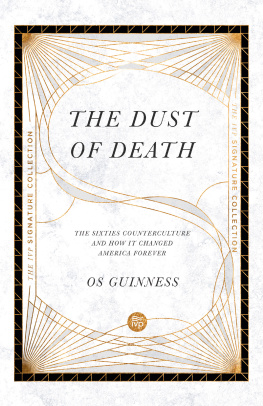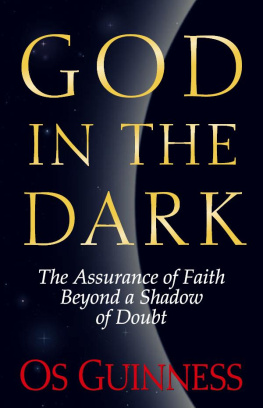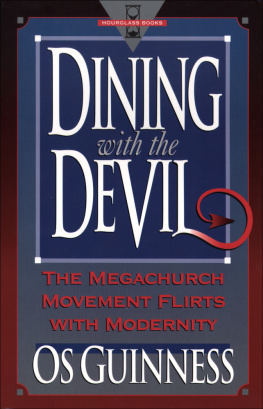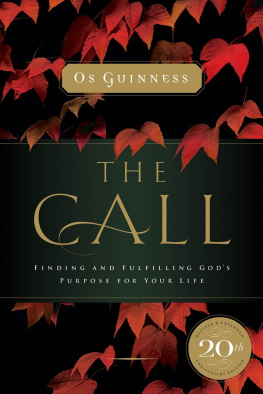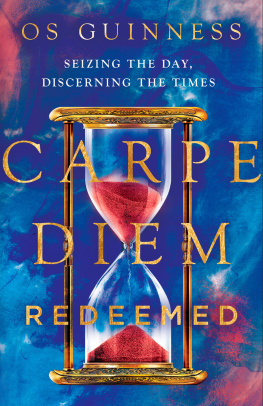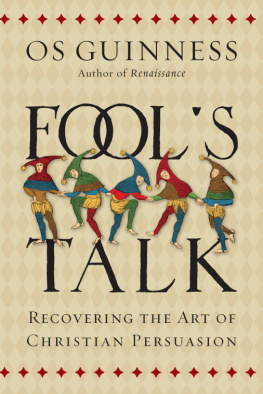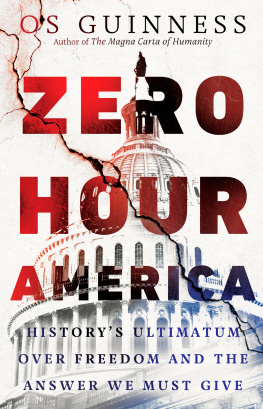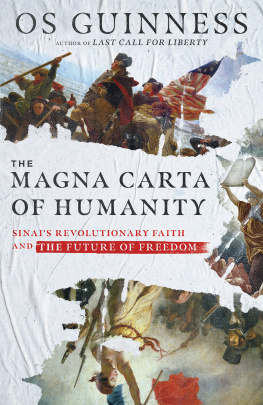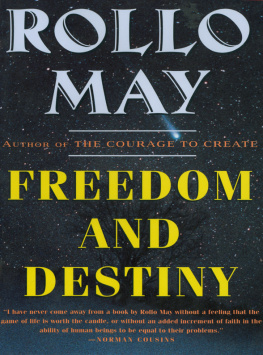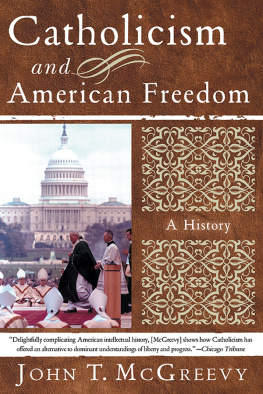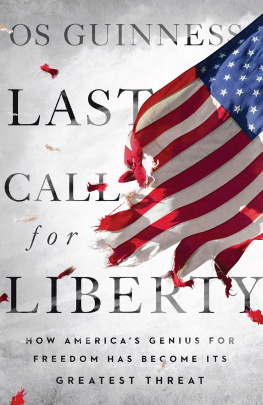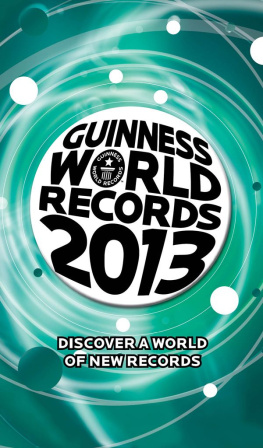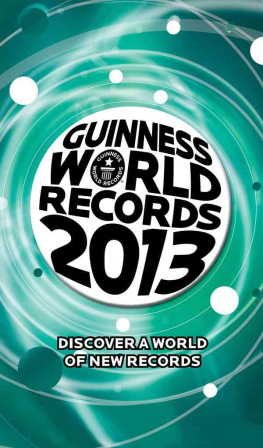Sometimes a book is so important and so timely that not to have read it is to embarrass oneself. This is such a book. Its message is so crucial and so clear that all Americans are obligated to read it and have a national conversation on its themes. No cultural commentator or politician who has not read this book should ever be taken seriously again. Let this book be the new litmus test. If you are serious about America, be familiar with its themes and expect to discuss them and to be tested on them. Rest assured that you will be, because America is now herself being tested on them. Alas, we will not be graded on a curve. This books clarion call is both piercing and full of hope. May God help us to hear it and to take action.
Os Guinness enlightens, cheers, chastises and informs with this latest contribution to our civic discourse. Guinness here solidifies his reputation as one of the most nimble voices from the Christian community as he surveys our history and our present with appreciation as well as deep concern. Highly recommended for all interested citizens, whatever their political or faith commitments.
With passion and urgency Os Guinness gives a sweeping historical account of Americas past and her prospects for the future. He urges us to pay serious attention to a deeper understanding of freedom and makes a compelling case for why freedom requires virtue. Weaving together a wide-ranging knowledge of classical, constitutional and contemporary history, Guinness warns of Americas decline but charts a course for Americas renewal. It is a straight-shooting and sober volume, yet in the end it is a hopeful book.
In a passionate work that blends historical-cultural analysis with moral exhortation, Os Guinness finds at the heart of Americas culture wars something different than what many observers have seen there. He identifies a freedom war, a struggle over the very concept of freedom itself, in which a new and open-ended sense of the term threatens to engulf all older meanings. As the Founders well understood, it is not enough for Americans to invoke endlessly the name of freedom when they no longer agree as to what it means, and particularly when they have lost an understanding of the preconditions of freedom, as well as the ends freedom is meant to serve. Guinness warns that freedom cannot long endure unless it is consecrated to purposes beyond itself. It is a warning worth heeding.
Wilfred M. McClay , SunTrust Chair of Excellence in Humanities, University of Tennessee at Chattanooga, and author of The Masterless: Self and Society in Modern America
A Free Peoples Suicide is an inside view from the outside. Os Guinness has a clear eye, a quick mind, a profound grasp of political philosophy and an eloquent pen. His analysis of American freedom, what it has been, now is and is likely to become, is a clarion call for renewal of the Founders vision for a free people.
James W. Sire , author of The Universe Next Door and Vclav Havel:
The Intellectual Conscience of International Politics
Name Index
Note: Page numbers refer to print edition, ISBN 978-0-8308-3465-5
Acton, 1st Baron (John Dalberg-Acton), 45,
47, 50-51, 85, 123, 152, 196
Adams, Abigail, 52, 117
Adams, John, 8, 39, 49, 53, 96, 108-10, 112-13, 117, 120, 137
Adams, John Quincy, 106
Aeschlyus, 20, 78
Alberti, Leon Batista, 154
Alexander the Great, 152, 176, 179
Allen, Ethan, 122-23
Aristotle, 73, 78
Augustine of Hippo, 7, 16, 21, 62, 78
Backus, Isaac, 124
Bacon, Francis, 100, 156
Barlow, Joel, 118
Berlin, Isaiah, 61, 64
Berry, Wendell, 89
Bin Laden, Osama, 187
Blair, Tony, 199
Bonaparte, Napoleon, 47, 67, 76, 168, 176, 182
Boyle, Robert, 155
Brodsky, Joseph, 9
Bryce, Lord James 133, 170
Buddha, Guatama, 59
Buffet, Warren, 26
Burckhardt, Jacob, 37
Burke, Edmund, 42, 46, 48, 52-53, 65, 110, 149, 174, 187, 189
Bush, George Herbert Walker, 36
Bush, George W., 25, 27-30, 87-88, 145, 183
Camus, Albert, 9, 111
Carter, Jimmy, 130
Castro, Fidel, 77
Cato the Elder, 69
Chesterton, G. K., 134, 151, 170, 203
Chiang Kai-shek, 30
Churchill, Winston, 13-14, 46, 74, 139, 152, 178, 183
Cicero, Marcus Tullius, 7, 49, 71, 73, 78, 81-82, 85
Cincinnatus, 93
Clinton, Bill, 36, 110, 111, 115
Corbbet, William, 116
Columbus, Christopher, 100
Comte, Auguste, 29
Conrad, Joseph, 88, 178
Constantine, 128
Copernicus, 155
Cornwallis, Charles, Lord, 93
Cotton, John, 124
Cromwell, Oliver, 94
Crusoe, Robinson, 149
Dante, 84
Dawkins, Richard, 140
Dawson, Christopher, 196
Dickens, Charles, 202
Diderot, Denis, 105
Disraeli, Benjamin, 197
Donne, John, 149
Eisenhower, Dwight D., 9, 118, 177
Eliot, T. S., 73, 102
Emerson, Ralph Waldo, 143
Epictetus, 58
Euripides, 20, 78
Evarts, William, 87
Ferguson, Niall, 136, 179, 180
Fischer, David Hackett, 42
Flexner, James, 95
Ford, Henry, 74, 88
Fox, Charles James, 51-52
Foucault, Michel, 160
Franklin, Benjamin, 8, 53, 66, 108-9, 117-19, 201-2
Frederick the Great, 111
Freud, Sigmund, 155
Friedman, Thomas, 126
Fukuyama, Francis, 172
Gardner, John W., 9, 35, 56, 81
Gaustad, Edwin, 109
George III, 95
George IV, 63
Gibbon, Edward, 78, 85, 87-88, 119
Gladstone, Michael Ewart, 49-50
Goethe, Johann Wolfgang von, 74
Grant, Julia, 87
Grant, Ulysses S., 87
Gray, John, 159-60
Greene, Nathaniel, 54
Guizot, Francois, 74
Habermas, Jrgen, 132


